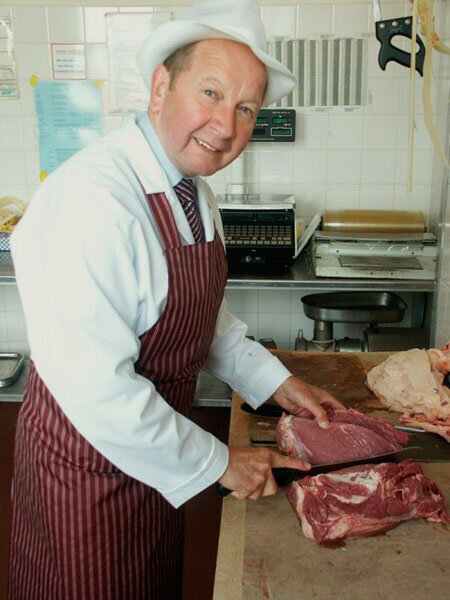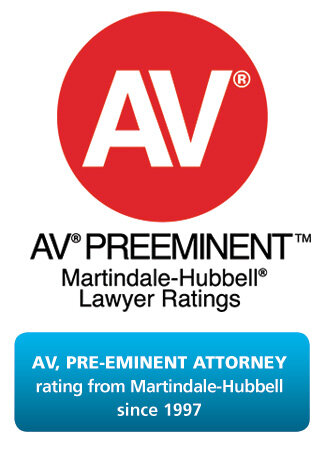How a Co-op ESOP Hybrid Works – If you missed this Feb. 21 webinar, you can now watch the recording here:https://vimeo.com/319063049You can also get the session materials, slides, and more here.Democratic ESOPs or ESOPs with co-op features has been a specialty of Deb Olson’s law practice for 38 years. Once Again Nut Butter Collective (OANB) is the featured example company in this webinar. OANB’s CEO, Bob Gelser, a worker board member, Scott Owens, and Deb, who is board chair of OANB will present on the two and ½ years of work that has led to the OANB participatory decision making system, and the history leading to it. Deb spoke about legal mechanisms and issues. Bob and Scott talked about the practical issues of making a participatory workplace of 80 people function efficiently. Chris Cooper of the Ohio Employee Ownership Center (OEOC) moderated.This event was cosponsored by the Groban Olson Law Firm, the Center for Community Based Enterprise (C2BE), the Ohio Employee Ownership Center at Kent State University (with support from the USDA's Rural Cooperative Development Program); Horizon Trust & Investment Management; and Once Again Nut Butter Collective, Inc.
Groban Olson law firm helps nation’s first “perpetually-employee-owned” life sciences company takes shape in Ann Arbor
Arbor Assays announced that it has become the first US life sciences company to be 100% perpetually employee owned, as of January 1, 2017.Wishing to pass the company to its 11 employees, the owners of Arbor Assays worked with the Law Firm of Deborah Groban Olson, PLLC and the Center for Community Based Enterprise (C2BE) in Detroit to develop the financial and legal framework for the sale to employees, using a model that’s fairly common in the UK, but new to the US.The former owners continue to be fully involved in the business which will now be managed as an employee-owned business.Dr. Russell Hart, said: "We want Arbor Assays to remain an independent and successful business and were impressed by how the perpetual trust model can achieve this. Shares are held on trust permanently for all employees, rather than allocated among staff as happens with ESOPs. This means there are no repurchase obligations that can destabilize a company's ownership. Profits that might otherwise be distributed to investors are available to pay out to staff as bonuses. We hope our adoption of this business model will encourage others in the US to do likewise and for the US tax authorities to consider tax breaks to encourage its take-up, as has happened in the UK. We appreciate C2BE’s help in providing a range of talented professionals with strong employee ownership experience to guide us through this transaction.”Attorney Deborah Groban Olson, Executive Director of the Center for Community Based Enterprise (C2BE) said, “We worked with Arbor Assays’ founders and employees to explore various means for accomplishing employee ownership that would include robust employee participation in the corporate governance, avoid unnecessary regulation and costs, and keep the business independent and rooted in Ann Arbor. After reviewing a number of options, including Employee Stock Ownership Plan (ESOP), a worker cooperative and the perpetual trust methods, Arbor Assays choose the perpetual trust as the most efficient and effective option. C2BE assisted the employees and the sellers to arrive at a mutually agreed fair price, and will continue to work with Arbor Assays as it builds its employee ownership culture and systems.The Arbor Assays trust establishes proof of concept of a new method of employee ownership that other American companies can adopt. The trust model of employee ownership is long established in the UK. The UK's John Lewis Partnership, with its successful supermarkets and department stores, employs almost 89,000 permanent staff and is 100% employee trust owned. Its trust ownership started in 1929. There are many other examples that demonstrate this is a tried and tested way of owning and running a business”.C2BE connects people and companies interested in developing employee ownership with technical advisors and education. The C2BE Arbor Assays project team, including David Drews and the Law Firm of Deborah Groban Olson, PLLC, represented the employee owners in the transaction, the UK firm of Fieldfisher created the UK trust and the sellers were represented by corporate counsel. David Drews of Justus Equity, a C2BE advisor, helped with financial modeling and the valuation of the company. Mr. Drews recently agreed to serve on the Arbor Assays board of directors.Bobbi O’Hara, R&D Project Manager at Arbor Assays, led the employee group through the transaction. Initially elected as the Employee Representative, she is now one of the Company Trustees. Bobbi O’Hara said: “Making the decision to transition from private ownership to perpetual trust speaks volumes about the faith in our collective competencies and the importance in taking care of each other, not just as coworkers, but as a community with a common goal. As employees, we are excited to see how we'll shape our shared responsibility and direct this opportunity to have an impact for the benefit of us all."Many thanks,Deborah Groban OlsonExecutive DirectorCenter for Community Based Enterprise (C2BE)231 E. Grand Blvd.Detroit, MI 48207(313) 331-7821 (office)(313) 300-6517 (cell)www.c2be.orgdgolson@c2be.orgdgo@esoplaw.comAbout Arbor Assays, Inc.Founded in 2007, Arbor Assays, of Ann Arbor, Michigan, serves customers globally, designing, developing and manufacturing detection and immunoassay products for important research biomolecules.734-677-1774 | Info@ArborAssays.com | www.ArborAssays.com
Cooperative Development for Communities and Unions - presentation at New Work New Culture Conference 10-19-14 in Detroit
Deb Olson facilitated a Worker Co-op Development workshop at the New Work New Culture conference in Detroit on 10-19-14. Deb provided an overview on all types of co-ops and worker ownership, and an update on the projects of the Center for Community Based Enterprise in the power point "Strategies for Community Wealth Building through Cooperation" as background for a focus on union worker co-ops. The other panelists were Kristen Barker and Phil Amadon, who spoke about the Cincinnati Union Co-op Initiative, and Chris Michalakis from UFCW Local 876 who explained the Local’s participation in Community Growth Partners, a non—profit which is developing a worker owned grocery store chain in metro Detroit through conversion of existing independent groceries. Their goal is creation of a unionized, worker owned grocery chain in Detroit providing the best locally-sourced food.
Olson speaks at Open Cities Detroit on Alternate Ownership Models on 1/20/ 2014
| Have you ever wanted to start a business? Are you a current owner? Panelists will discuss alternative models of business ownership, including co-ops and employee stock ownership plans.Panelists will include: Atty. Deborah Groban Olson-Executive Director of Center for Community Based Enterprise, Inc.Bekah Galang Colors - Detroit Co-op Academy CoordinatorTera Holcomb founding Partner Sidecar DetroitAnd will be moderated by @Chanell Scott, Co-op consultant at 456 ConsultingOpen City Detroit is a free networking event that facilitates exchange about starting, operating and growing a small business in Detroit. By providing an informal space for entrepreneurs to share stories, information and resources, Open City aims to strengthen the local business community. |
North Coast Brass and Copper Co.
Extensive Employee ControlIn 1987, the 535 employees of Chase Brass, the sheet metal division of BP America, Inc., were about to lose their jobs to a plant closing. The division made copper and brass sheets used largely for auto and electrical manufacturing. BP America indicated an openness to a deal with division employees, and on Jan. 29, 1988, the workers began to experience life as owners of the newly renamed North Coast Brass & Copper Co.Labor unions representing workers in the plant  have four seats on the nine-member board of directors, management has two seats, and labor and management jointly select three outsiders to the board. At the time, Attorney Deborah Groban Olson, who assisted the employees with the buyout, indicated that North Coast probably had more immediate employee and union control in its governance structure than any other employee buyout of its size.The purchase price for North Coast was significantly lower than the liquidation value. The workers financed the deal with $30 million from AmeriTrust - $22 million in revolving credit and an $8 million employee stock option term loan. After about 5 years, the company was purchased by foreign owners from the employees.
have four seats on the nine-member board of directors, management has two seats, and labor and management jointly select three outsiders to the board. At the time, Attorney Deborah Groban Olson, who assisted the employees with the buyout, indicated that North Coast probably had more immediate employee and union control in its governance structure than any other employee buyout of its size.The purchase price for North Coast was significantly lower than the liquidation value. The workers financed the deal with $30 million from AmeriTrust - $22 million in revolving credit and an $8 million employee stock option term loan. After about 5 years, the company was purchased by foreign owners from the employees.
United Food and Commercial Workers (UFCW)
2011 this 100% employee- owned chain of 76 grocery stores, with over 15,000 employees, has already expanded to 80 unionized stores.
In 2011 Homeland Acquisition Corp. (HAC), a grocery store chain in  Oklahoma and Texas, and United Food and Commercial Workers (UFCW)Local 1000, partnered to transition the company to 100% employee ownership using an Employee Stock Ownership Plan (ESOP). As part of the transition, HAC and UFCW negotiated a new contract and the terms of the ESOP, as well as a number of corporate governance provisions for the new company. When the deal closed at the end of 2011 there were 76 stores. Now there are 80 stores, all of them union.
Oklahoma and Texas, and United Food and Commercial Workers (UFCW)Local 1000, partnered to transition the company to 100% employee ownership using an Employee Stock Ownership Plan (ESOP). As part of the transition, HAC and UFCW negotiated a new contract and the terms of the ESOP, as well as a number of corporate governance provisions for the new company. When the deal closed at the end of 2011 there were 76 stores. Now there are 80 stores, all of them union.
Aided in negotiations by several financial and legal advisors, including Attorney Deborah Groban Olson, UFCW and HAC agreed on:
- A new defined benefit plan
- ESOP participation for union members
- A significant role for the union on the board of directors
- A representation agreement covering new stores opened by the company.
According to UFCW Local 1000 President Ricky Burris:
“UFCW members are excited to own a majority of HAC stock and are eager to work with management to achieve continued success for the company. We take seriously the responsibilities that come with ownership, representation on the board of directors, and a voice in major corporate decisions.”
For another example of Deborah Olson's ESOP work with the UFCW see the Rosauers case study.
Paper Mill
 Paper mills proved to be too capital intensive to enable successful employee buyouts. However, in a number of cases, the active participation of the union in the purchase process, enabled the union to have some influence on getting a more favorable company as the successful buyer, and thus getting better union contracts than they would have from other buyers.
Paper mills proved to be too capital intensive to enable successful employee buyouts. However, in a number of cases, the active participation of the union in the purchase process, enabled the union to have some influence on getting a more favorable company as the successful buyer, and thus getting better union contracts than they would have from other buyers.Homeland Grocery
UFCW negotiated an ESOP with a significant union role in corporate governance and representation agreement for new stores. Since 2011 this 100% employee-owned chain of 76 grocery stores, employing over 15,000 people, has already expanded to 80 unionized stores.
In 2011 Homeland Acquisition Corp. (HAC),  a grocery store chain in Oklahoma and Texas, and United Food and Commercial Workers (UFCW) Local 1000, partnered to transition the company to 100% employee ownership using an Employee Stock Ownership Plan (ESOP). As part of the transition, HAC and UFCW negotiated a new contract and the terms of the ESOP, as well as a number of corporate governance provisions for the new company. When the deal closed at the end of 2011 there were 76 stores. Now there are 80 stores, all of them union.
a grocery store chain in Oklahoma and Texas, and United Food and Commercial Workers (UFCW) Local 1000, partnered to transition the company to 100% employee ownership using an Employee Stock Ownership Plan (ESOP). As part of the transition, HAC and UFCW negotiated a new contract and the terms of the ESOP, as well as a number of corporate governance provisions for the new company. When the deal closed at the end of 2011 there were 76 stores. Now there are 80 stores, all of them union.
Aided in negotiations by several financial and legal advisors, including Attorney Deborah Groban Olson, UFCW and HAC agreed on:
- A new defined benefit plan;
- ESOP participation for union members;
- A significant role for the union on the board of directors;
- A representation agreement covering new stores opened by the company.
According to UFCW Local 1000 President Ricky Burris:
“UFCW members are excited to own a majority of HAC stock and are eager to work with management to achieve continued success for the company. We take seriously the responsibilities that come with ownership, representation on the board of directors, and a voice in major corporate decisions.”



